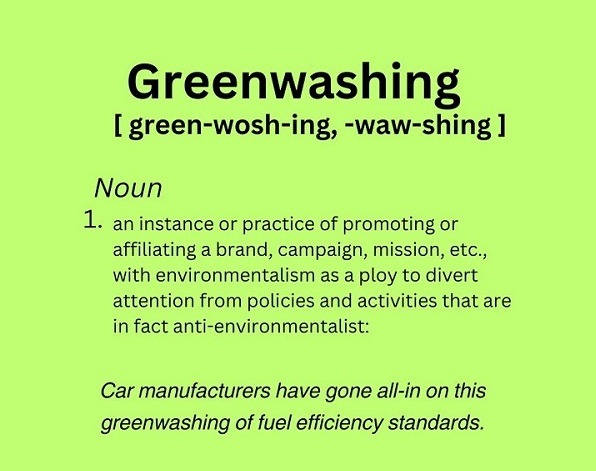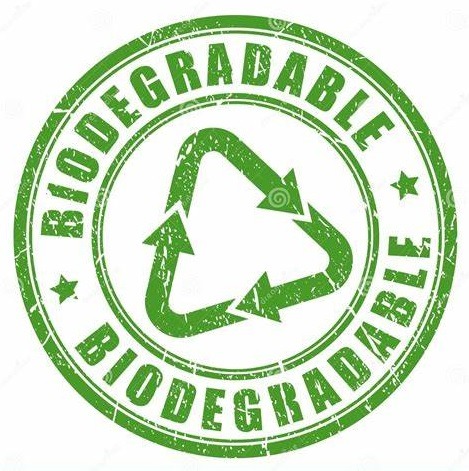Greenwashing; What is it and How to Avoid it
Greenwashing: The Art of Deception in Eco-Friendly Marketing Greenwashing is when a company deceives consumers by falsely claiming their products are environmentally friendly. When in reality they may be harmful…
Greenwashing: The Art of Deception in Eco-Friendly Marketing
Greenwashing is when a company deceives consumers by falsely claiming their products are environmentally friendly. When in reality they may be harmful to the environment or have a minimal positive impact.
This deceptive practice is often used to capitalize on the growing consumer demand for sustainable and eco-friendly products.
In today’s world, consumers are becoming increasingly aware of their environmental impact and seeking out products that align with their values. As a result, many companies are jumping on the “green” bandwagon, touting their products as environmentally friendly without providing any substantial evidence to support these claims. This is where greenwashing comes into play.
Greenwashing can take many forms. It can involve misleading labels or certifications that give the illusion of sustainability. For example, a company may use terms like “natural,” “eco-friendly,” or “green” on their packaging without any clear definition or verification of what these terms actually mean in relation to their product.
Another common tactic used in greenwashing is highlighting one environmentally friendly aspect of a product while conveniently ignoring other negative aspects. For instance, a company might promote a skincare product as organic and plant-based but fail to mention that it contains toxic preservatives or harmful chemicals.
Furthermore, some companies engage in greenwashing by associating themselves with environmental causes or initiatives without truly embodying those values throughout their operations. They may make large donations to environmental organizations but continue unsustainable practices within their own supply chains.
The consequences of greenwashing are far-reaching and damaging both for consumers and the environment. Firstly, consumers who genuinely want to make sustainable choices may be misled into purchasing products under false pretenses. They believe they are making an eco-conscious choice when, in reality, they are unknowingly supporting practices that harm our planet.
Moreover, when companies engage in greenwashing practices, it undermines the efforts made by genuinely sustainable businesses striving towards reducing their carbon footprint and creating positive change for the environment. Greenwashing erodes consumer trust and makes it harder for genuine eco-friendly businesses to stand out from those falsely claiming sustainability.
How to Avoid Buying Non-Environmentally Friendly Products
To combat greenwashing, consumers must become more informed and critical when evaluating a product’s environmental claims.
It is essential to look beyond flashy marketing campaigns and scrutinize the evidence supporting a company’s green credentials.
Third-party certifications such as USDA Organic, Fair Trade, or Energy Star can provide some reassurance of a product’s sustainability.
Additionally, consumers can research the company’s track record in sustainability efforts. Are they transparent about their supply chains? Do they have clear goals and initiatives to reduce their environmental impact? These questions can help separate genuine eco-friendly companies from those engaging in greenwashing.
Regulatory bodies also play a crucial role in curbing greenwashing practices. Governments should implement stricter regulations and guidelines for companies making environmental claims. This would ensure that businesses are held accountable for their actions and discouraged from misleading consumers with unsubstantiated claims.
Companies themselves need to take responsibility for their actions as well. Instead of engaging in deceptive practices, they should invest in genuine sustainable initiatives that align with their values and contribute positively to the environment. Transparency is key – companies should be open about their processes, materials used, and any potential negative impacts associated with their products.
In conclusion
Greenwashing is an unethical practice that deceives consumers by falsely claiming products are environmentally friendly when they may not be. It undermines consumer trust while hindering genuinely sustainable businesses from standing out amidst false claims of sustainability. To combat greenwashing effectively, consumers need to be more informed and critical when evaluating environmental claims made by companies while regulatory bodies must enforce stricter guidelines to hold businesses accountable for misleading practices. Ultimately, it is imperative for companies themselves to adopt transparent business practices that prioritize genuine sustainability over profit-driven deception.






